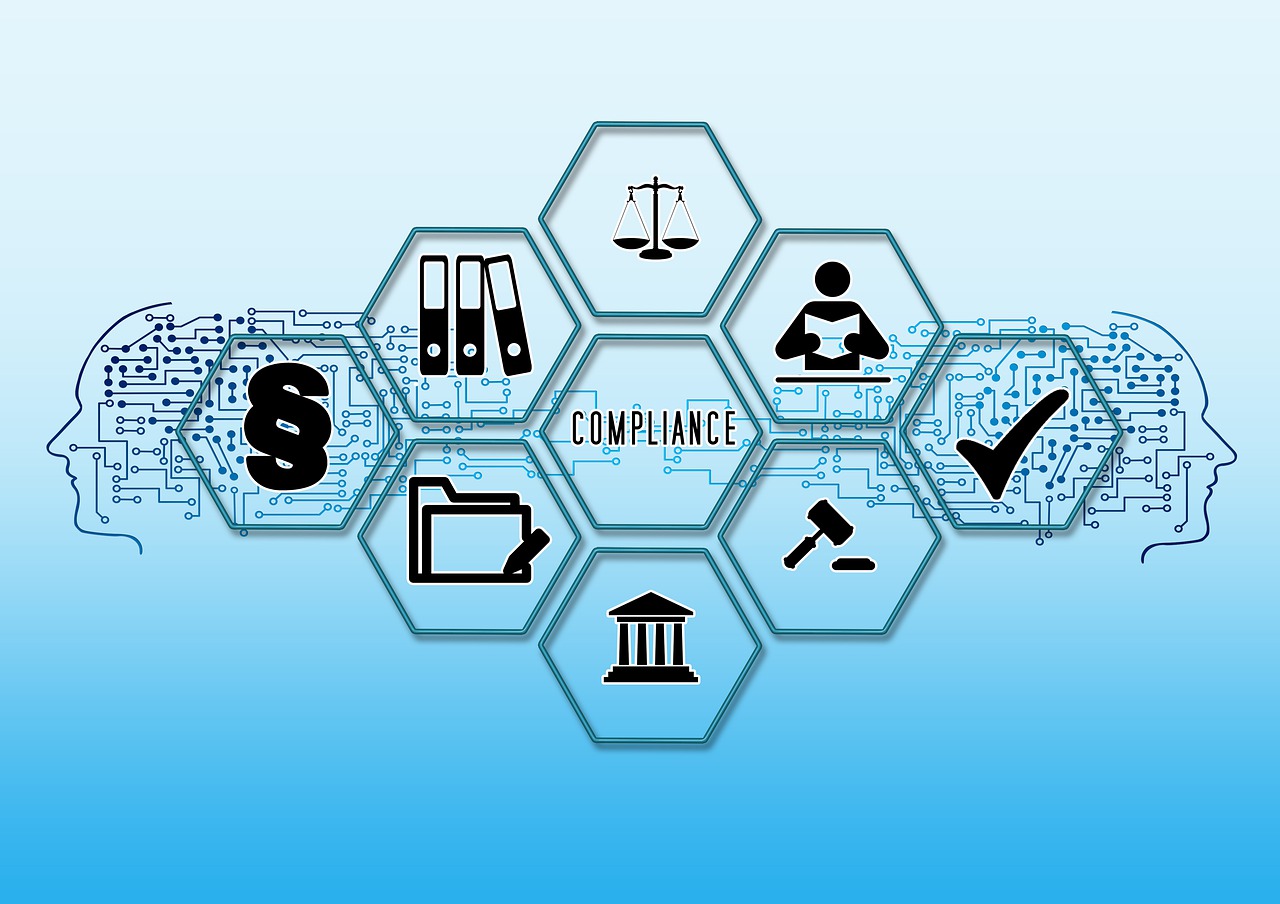In the digital age, social media has become an integral part of our lives, including the world of commerce. However, as the e-commerce landscape continues to evolve, businesses face a growing challenge when it comes to social media claims compliance. With the rise of online platforms, the dissemination of false or misleading information has become all too common, posing significant legal risks for companies. In this article, we will explore the importance of social media claims compliance for e-commerce, shedding light on the legal implications and providing valuable insights for businesses to navigate this complex terrain. We will address key frequently asked questions, providing concise answers to help businesses understand the legal landscape and take appropriate action.

Overview
What is social media claims compliance?
Social media claims compliance refers to the adherence to legal and regulatory standards when businesses advertise products or services on social media platforms. It involves ensuring that the claims made in advertisements are accurate, substantiated, and comply with advertising regulations and platform policies.
Why is social media claims compliance important for e-commerce?
Social media has become a powerful marketing tool for e-commerce businesses, allowing them to reach a wide audience and promote their products or services. However, with this opportunity comes the responsibility to comply with legal and regulatory requirements. Non-compliance can result in legal consequences, damage to reputation, and loss of customer trust. Therefore, social media claims compliance is essential for e-commerce businesses to protect themselves and maintain a positive brand image.
Legal Considerations
Advertising regulations
E-commerce businesses must be aware of the advertising regulations in their jurisdiction. These regulations govern various aspects of advertising, including the use of misleading or deceptive claims, comparative advertising, and the disclosure of material information. By understanding and complying with these regulations, businesses can ensure that their advertisements meet legal requirements.
FTC guidelines
The Federal Trade Commission (FTC) in the United States provides guidelines that businesses must follow when advertising on social media. These guidelines require businesses to clearly and conspicuously disclose any material connections or incentives that exist between them and endorsers or influencers. Failure to comply with FTC guidelines can lead to penalties and reputational damage.
Consumer protection laws
Consumer protection laws aim to safeguard consumers from false or misleading advertising practices. E-commerce businesses must familiarize themselves with these laws to avoid making claims that could be deemed misleading or deceptive. By complying with consumer protection laws, businesses can build trust with their customers and mitigate legal risks.
Social Media Platforms
Facebook is one of the largest social media platforms and offers various advertising options for businesses. It has specific policies and guidelines for advertising, and businesses must comply with these to ensure their ads are not rejected. Understanding Facebook’s advertising policies helps businesses avoid violations and maximize the effectiveness of their campaigns.
As a popular visual platform, Instagram provides opportunities for e-commerce businesses to showcase their products. However, businesses must adhere to Instagram’s advertising policies, including the use of appropriate disclosures and compliance with community guidelines. By following these guidelines, businesses can leverage Instagram’s reach without risking non-compliance.
Twitter’s advertising policies set standards for businesses advertising on the platform. These policies cover issues such as prohibited content, the inclusion of disclosures, and spam prevention. E-commerce businesses must familiarize themselves with these policies to ensure their tweets comply with Twitter’s requirements and avoid penalties.
LinkedIn offers advertising options for businesses targeting professionals and B2B markets. Advertisers on LinkedIn must adhere to the platform’s advertising policies, which cover areas such as accuracy of claims, industry regulations, and privacy and data protection. By complying with LinkedIn’s policies, businesses can effectively reach their target audience while maintaining credibility and professionalism.
Advertising Standards
Clear and conspicuous disclosures
To ensure transparency and compliance, businesses must provide clear and conspicuous disclosures in their social media advertisements. Disclosures should be easily noticeable, understandable, and placed in close proximity to the claim they are related to. Failure to provide adequate disclosures can mislead consumers and result in legal consequences.
Truth-in-advertising standards
Truth-in-advertising standards require businesses to make accurate and truthful claims in their advertisements. Claims should be based on reliable evidence and substantiated by scientific studies, consumer testimonials, or other credible sources. By adhering to truth-in-advertising standards, businesses can avoid misrepresentations and build trust with their customers.
Compliance with platform policies
Each social media platform has its own set of policies that govern advertising content. Businesses must understand and comply with these policies to avoid content rejection, suspensions, or account termination. By staying up-to-date with platform policies, businesses can optimize their advertising efforts and maintain a positive presence on social media.

Content Guidelines
Accurate and substantiated claims
When creating content for social media advertisements, businesses should ensure that the claims made are accurate and supported by evidence. Claims that exaggerate or misrepresent product features or benefits can lead to legal consequences and damage to reputation. By making accurate and substantiated claims, businesses can build credibility and trust with their target audience.
Avoiding deceptive statements
Deceptive statements in social media advertising can mislead consumers and violate laws and regulations. Businesses should refrain from making false or misleading statements about their products or services. Honesty and transparency in advertising foster trust and loyalty among customers.
Avoiding spam and clickbait
Spam and clickbait tactics can diminish the reputation of businesses and annoy social media users. Businesses should avoid engaging in such practices, which are often characterized by repetitive or irrelevant content, misleading headlines, or incentivized clicks. By providing valuable and relevant content, businesses can engage their audience and build long-term relationships.
Influencer Marketing
Disclosure requirements for sponsored content
Businesses that engage influencers for promotional activities must ensure that proper disclosures are made. The relationship between the influencer and the business must be clearly communicated to the audience, indicating that the content is sponsored. Transparent disclosure helps maintain credibility and comply with legal requirements.
FTC guidelines for influencers
Influencers, as endorsers of products or services, are also subject to FTC guidelines. Influencers must disclose any material connections or incentives they have with the businesses they promote. Businesses that engage influencers should educate them about these guidelines and ensure compliance to avoid legal issues and reputational harm.
Contractual agreements with influencers
To establish clear expectations and compliance with legal requirements, businesses should have contractual agreements with influencers. These agreements can outline the responsibilities of both parties, including the adherence to advertising regulations, disclosure requirements, and the use of accurate and substantiated claims. Formal agreements protect businesses and provide clarity for influencer marketing campaigns.
User-Generated Content
Moderation and monitoring
When businesses allow users to generate content related to their products or services, it is essential to have moderation and monitoring processes in place. By actively monitoring user-generated content, businesses can identify and address any false claims, inappropriate content, or potential legal issues. Effective moderation helps maintain credibility and protects the interests of the business and its customers.
Dealing with false claims and reviews
False claims or negative reviews can harm a business’s reputation on social media. Businesses should have strategies in place to address false claims and handle negative reviews promptly and professionally. Responding appropriately and transparently to negative feedback demonstrates a commitment to customer satisfaction and can help mitigate the negative impact of false claims.
Copyright and intellectual property concerns
User-generated content may infringe upon copyrights or other intellectual property rights. E-commerce businesses should have policies and procedures in place to address copyright infringement and protect their own intellectual property. Proactive monitoring and quick action against infringement help businesses maintain control over their brand and intellectual property assets.
Customer Data and Privacy
Compliance with data protection regulations
E-commerce businesses must ensure compliance with data protection regulations when collecting and using customer data on social media. Regulations such as the General Data Protection Regulation (GDPR) in the European Union require businesses to obtain proper consent, securely handle data, and provide transparency regarding data usage. By respecting privacy rights and complying with data protection regulations, businesses can enhance customer trust.
Obtaining consent for data usage
To comply with data protection regulations, businesses must obtain explicit and informed consent from customers for the collection, processing, and sharing of their personal data. This consent should be obtained in a transparent and accessible manner. By obtaining proper consent, businesses demonstrate a commitment to respecting customer privacy and build trust with their audience.
Secure handling of customer data
The security of customer data is crucial for e-commerce businesses. Adequate measures should be taken to protect customer data from unauthorized access, data breaches, or misuse. Implementing security measures such as encryption, access controls, and regular vulnerability assessments can help safeguard customer data and mitigate potential risks.

Risk Management
Developing a social media policy
Developing a comprehensive social media policy is essential to ensure compliance with legal requirements and mitigate risks. A social media policy outlines the dos and don’ts of social media use, addresses compliance with advertising regulations, and provides guidance on appropriate content creation and engagement. By establishing a clear policy, businesses can align their social media practices with legal requirements and mitigate potential risks.
Training employees on compliance
Employees involved in social media marketing should receive training on compliance with advertising regulations and social media platform policies. Training should cover areas such as accurate and substantiated claims, clear disclosures, and appropriate content creation. Educating employees on compliance best practices empowers them to uphold legal standards and contribute to the overall compliance of the business.
Regular audit and review processes
Regular audits and reviews of social media content and practices are essential for ongoing compliance. Businesses should periodically assess their social media advertising campaigns, content, and disclosures to ensure they meet legal requirements and align with platform policies. This proactive approach allows businesses to identify and address compliance gaps before they result in legal issues or reputational harm.
FAQs
What are the key considerations when posting advertisements on social media?
When posting advertisements on social media, key considerations include compliance with advertising regulations, platform policies, and truth-in-advertising standards. Clear and conspicuous disclosures, accurate and substantiated claims, and appropriate content creation are essential to maintain legal compliance and build trust with the audience.
How can businesses ensure compliance with FTC guidelines?
Businesses can ensure compliance with FTC guidelines by implementing transparent disclosure practices, both for sponsored content and endorsements. Properly educating influencers, having contractual agreements in place, and regularly monitoring compliance with FTC guidelines are crucial steps to meet legal requirements and avoid penalties.
Should businesses use professional legal assistance for social media claims compliance?
It is advisable for businesses to seek professional legal assistance for social media claims compliance. Legal professionals specializing in advertising and e-commerce law can provide expert guidance, help navigate complex regulations, and ensure that businesses are fully compliant with legal requirements. Professional assistance can mitigate legal risks and protect the interests of the business and its stakeholders.






































